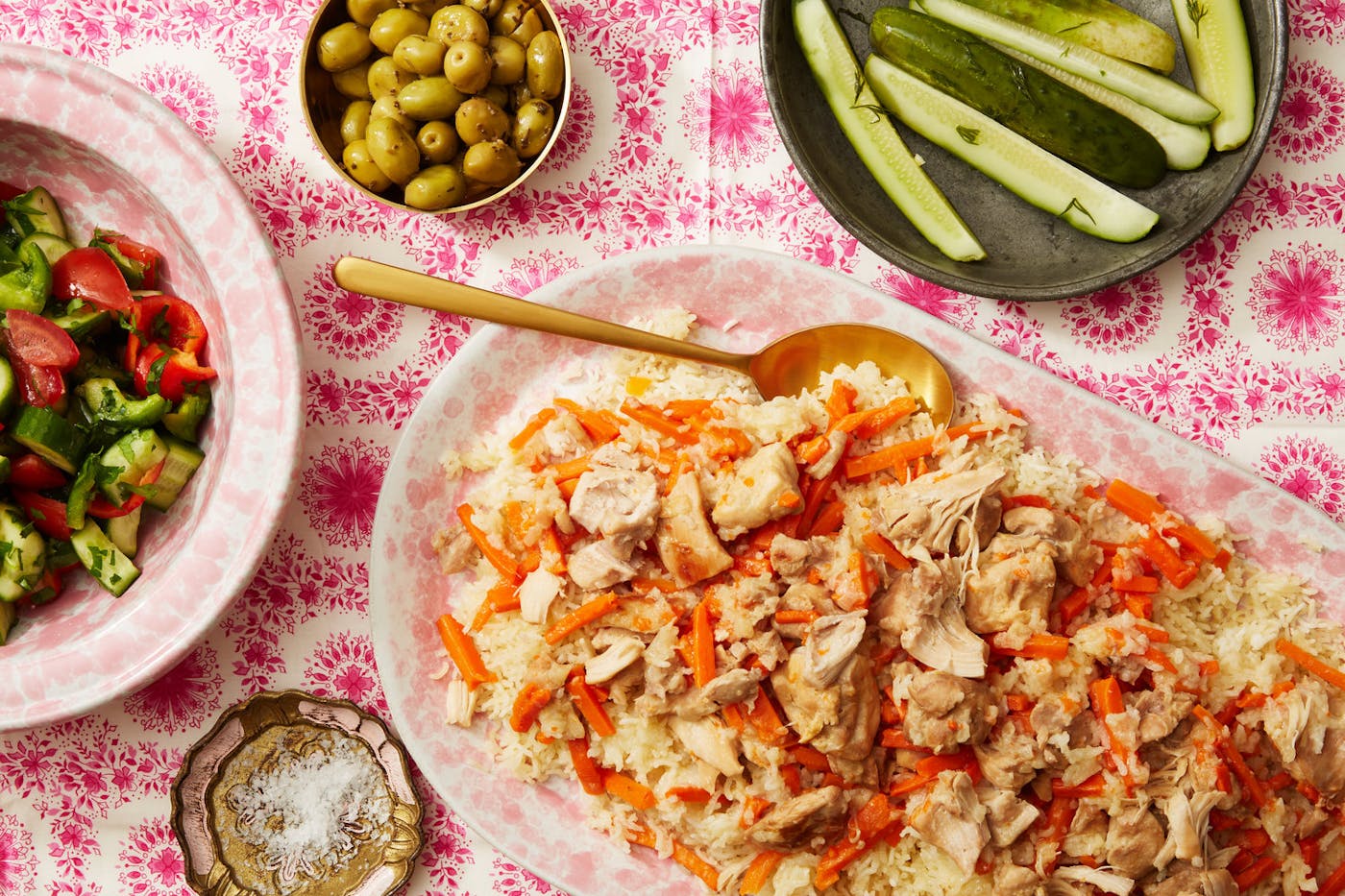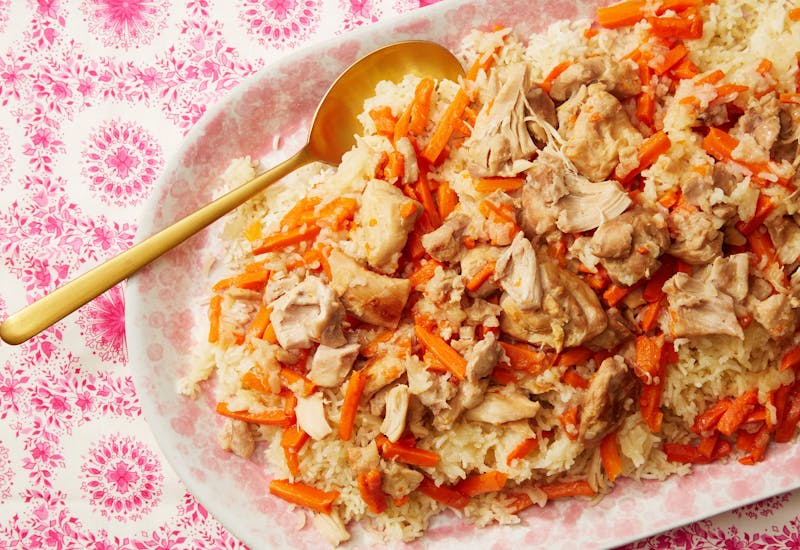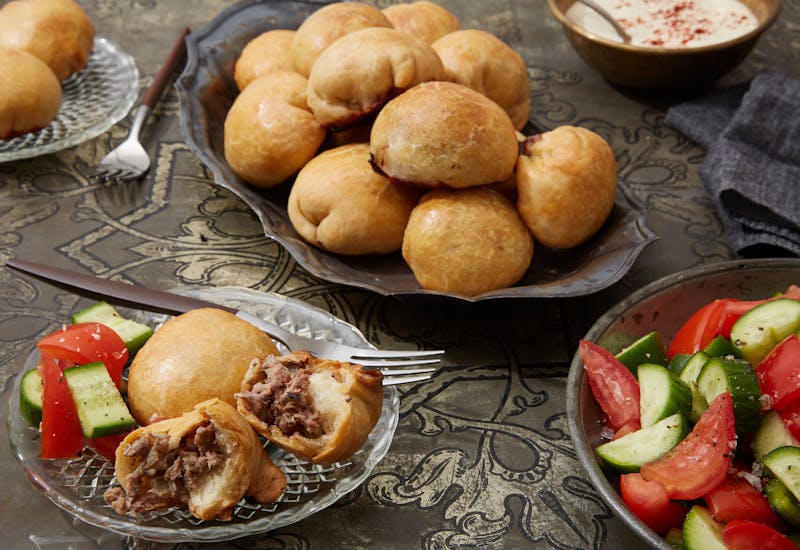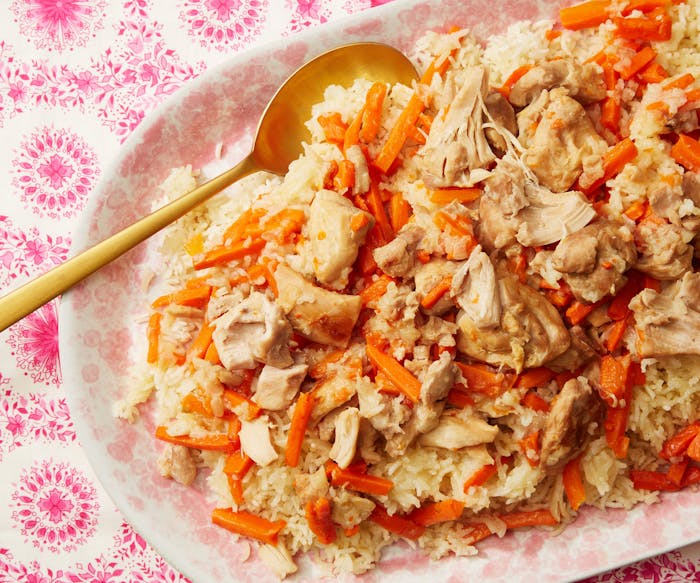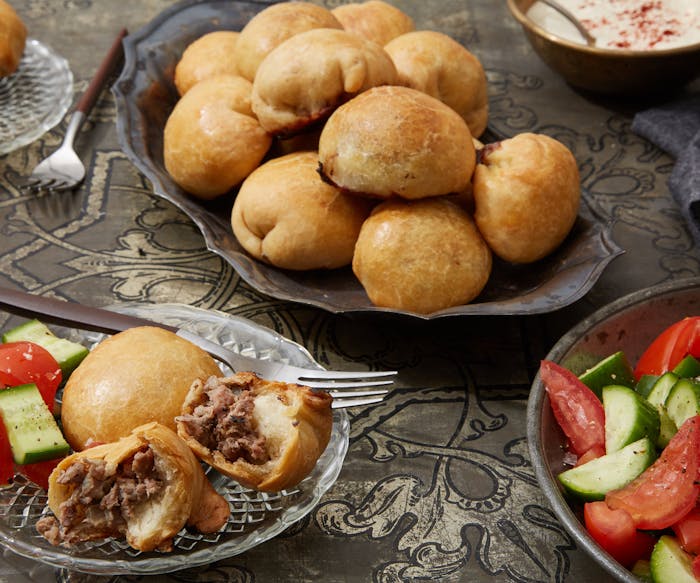In Ruti Merom’s childhood apartment in Haifa, the table was always covered with dishes from Uzbekistan. There was plov, a rice pilaf, and goshtgizhda, or savory meat filled pies for special occasions and Rosh Hashanah. For Friday lunch there was a stew called shola, made with rice, tomato paste, carrots, onions, red pepper, zucchini and meat, and baksh or rice infused and colored with bunches of cilantro, parsley, dill, and mint and finished with fried onions and minced meat for Shabbat dinner.
The child of immigrants from Uzbekistan, Ruti lived with both of her grandmothers who were passionate cooks, faithfully preparing these dishes from their home country almost three thousand miles away. In 1933, driven by a Zionist ideology and a lack of economic opportunity, Ruti’s parents illegally left Uzbekistan for Eretz Yisrael (British Mandate Palestine) traveling through Kabul in Afghanistan and Karachi, Pakistan then Basra in Iraq by boat, on to Baghdad, Damascus and finally to the border in the Golan Heights. When her family arrived in Haifa, they were one of three Bukharian (the ethnic minority of Jews who settled in Central Asia) families in the town, including Ruti’s uncle who had arrived years earlier.
As the Bukharian community in Downtown Haifa grew to 15 families, a synagogue and shared culture kept members close. Everyone was part of every family event, happy or sad, Ruti explained to us. In the 1950s and ‘60s, families started to move up the Carmel Mountain that Haifa is situated on. Ruti’s parents followed suit, living for a period over a vegetable shop they owned and later settling on Moriah Boulevard in a building they purchased. With her parents no longer working downstairs, it became Ruti’s job to catch the bus and deliver lunch to her parents at the shop. Her grandmothers would stack three pots atop one another and bind them together with a handle for her journey.
Bukharian recipes weren’t just for meals at home or at the store, though. Ruti recalls a family camping trip to Ein Gedi near the Dead Sea in the early 1980s with her sister-in-law and her cousin Tamara. The family started to crave goshtgizhda, the Bukharian meat pies, which Ruti’s family calls gushgeishda. To satisfy the group, someone drove to Jericho to buy the ingredients and Tamara rolled out the dough with a broom stick on a small stool to make the dish, much to everyone’s delight.
While they were surrounded by Bukharian cooking, neither Ruti nor her mother took to the kitchen, but a few of the recipes managed to be passed down. When Ruti married, her mother-in-law taught her the basics, but it was her mother who taught her the family plov recipe (which the Merom’s pronounce “plow”). In Uzbekistan, the grandmothers made it with lamb, but in Israel, her mother made it with beef and Ruti makes it with chicken or turkey. A piece of meat, rice, and carrots should fit into each spoonful for the perfect bite, she explains.
This past year, Ruti passed along the plov recipe to the next generation, her daughter and two daughters-in-law, some of whom still live in the building Ruti’s parents purchased on Moriah Boulevard. Her daughters like to cook even less than she does, Ruti admits, but four generations into life in Israel, the family ensures that the pots of plov continue to simmer on Carmel Mountain.
